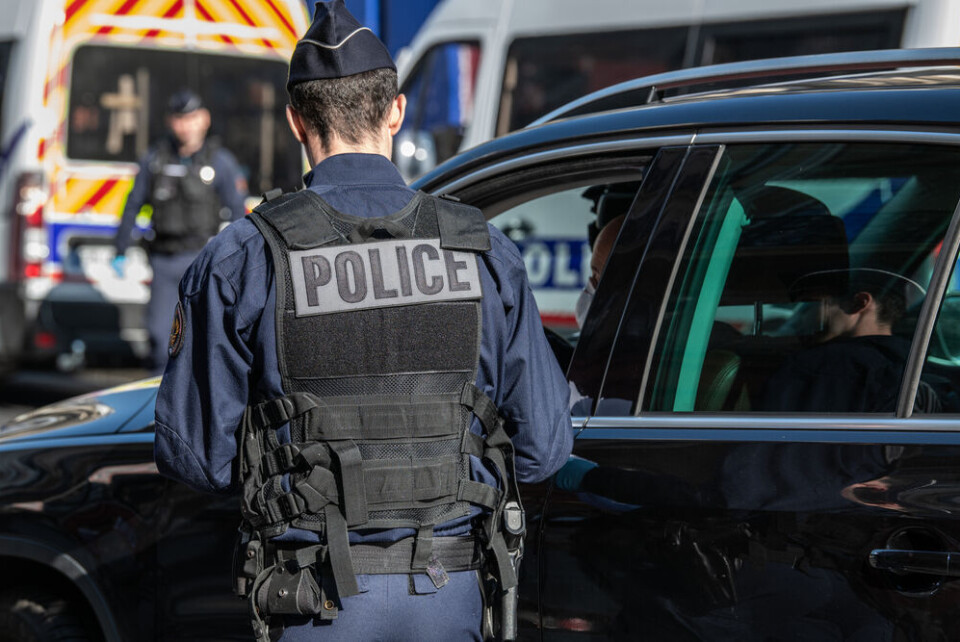-
Best value 2026 Michelin French restaurants: Are there any near you?
Four regions did especially well on this year’s Bib Gourmand restaurant list
-
Western France placed on heightened river flooding alert
Three rivers face increased warnings as more rain set to fall in coming days
-
France launches fertility plan as birth rate falls below deaths
Government plans to send a letter to all 29-year-olds
France placed on highest alert after Moscow attack: what changes?
Anti-terrorist measures are stepped up. Alert may remain throughout summer

France’s anti-terrorist ‘Vigipirate’ alert system has been increased to its highest level, following Friday’s attack in Moscow in which 137 people are reported to have been killed.
Prime minister Gabriel Attal announced the temporary increase on Sunday (March 24), after the attack on a concert hall in Moscow.
The decision came after discussions with France’s security council.
À la suite de l’attentat de Moscou, un Conseil de Défense et de Sécurité nationale a été réuni ce soir à l’Elysée par le Président de la République.
— Gabriel Attal (@GabrielAttal) March 24, 2024
Compte tenu de la revendication de l’attentat par l’état islamique et des menaces qui pèsent sur notre pays, nous avons décidé de…
The terrorist group IS (also known as ISIS) has claimed responsibility for the attack in Russia.
“This organisation is threatening France and has been involved in several recent foiled attacks in several European countries, including Germany and France,” said the prime minister’s office in a press announcement.
“The prime minister has asked the Secretary General for Defence and National Security, who comes under his authority, to convene a meeting involving all the security services affected by the increase in the Vigipirate level," it added
What does the announcement change?
The ‘Vigipirate’ system comes in three levels, and is used as a benchmark to assess the likelihood of a terrorist act in France.
The levels are:
- Vigilance (Vigilance, the lowest level)
- Sécurité renforcée – risque d’attentat ( enhanced security - risk of attack)
- Urgence – attentat (emergency, the highest possible level)
Read more: What is France’s Vigipirate alert system?
This is the sixth time in ten years that France has been placed on the highest level. The most recent was after the stabbing of a teacher in Arras in October 2023.
The country can only temporarily be placed at this level. In recent years, however, the country has mostly been at the second level, occasionally rising to the first.
During the periods of ‘Urgence – attentat’ additional resources are made available for security forces.
The most notable of these is the option to increase the number of armed police officers and soldiers patrolling in cities where an attack is more likely.
Usually, around 3,000 soldiers take part in the activities of Opération Sentinelle, however when the highest Vigipirate level was last reached 7,000 extra armed soldiers and officers were made available for the task.
More stringent secutiy checks, including in airports, may also take place.
Police will also increase the number of spot checks they carry out on individuals.
As a reminder, all people in France, including visitors, need to carry valid ID on them.
Read more: What are valid forms of ID in France and must I always carry one?
Read more: 128,000 identity checks a day in France: what must foreigners show?
The exact changes will likely be announced after Mr Attal meets with security forces today.
Attempt to prevent terrorist activity
Additional information is also made available, particularly for workers in public spaces, about what to do in the event of a terrorist attack.
"This mobilises the public even more. Safety must also be based on the mobilisation of the population, reporting suspicious events, isolated luggage... It's a very broad mobilisation", said Jérôme Poirot, the former former deputy national intelligence coordinator.
It is unknown yet when the alert level will be reduced, but with the 2024 Olympic Games starting in Paris in less than four months, the government may decide to prolong the warning level to provide extra security during the event.
Since 2015, 74 terrorist attacks have been stopped on French soil, whilst 24 have been carried out. states data from the Interior Ministry. Prevention operations have led to more than 1,500 arrests.
Related articles
Far-right terrorism ‘is a real threat’ in France
Survivalist arrested over booby trap home full of bombs in France
























